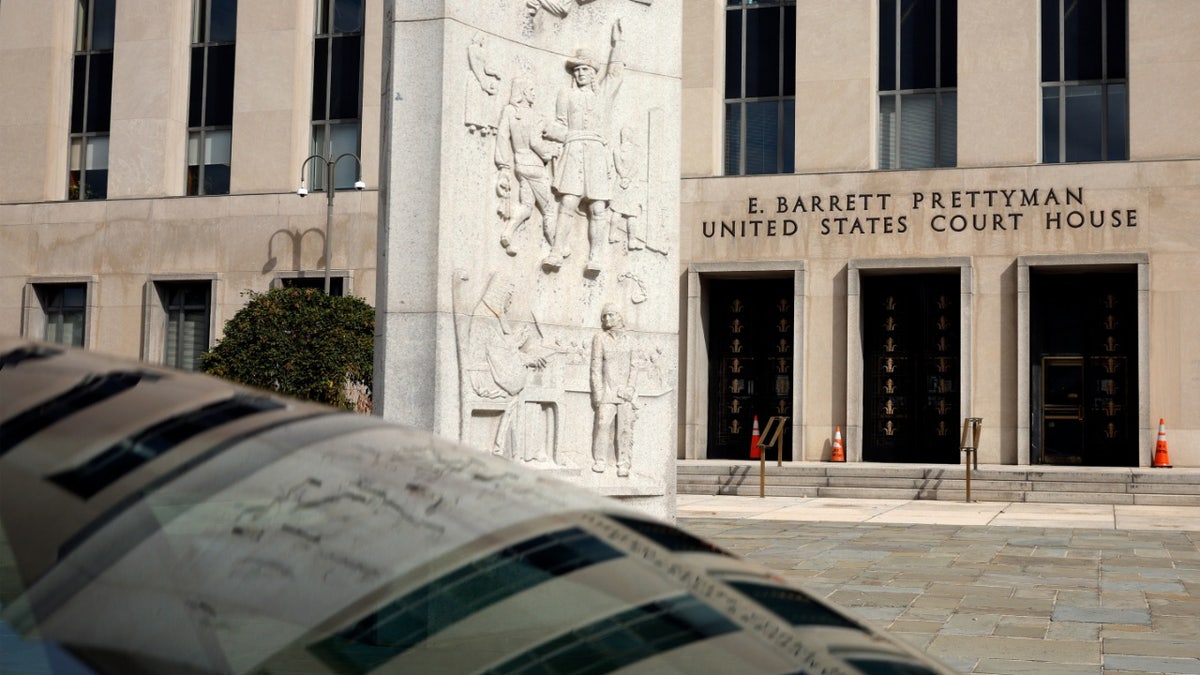A federal appeals court voted en banc Monday to block President Donald Trump’s firings of two federal board members, reversing an appellate court ruling and clearing the way for the Trump administration to appeal the case to the Supreme Court.
Judges for the U.S. Court of Appeals for the District of Columbia Circuit voted 7-4 Monday to restore the positions of National Labor Relations Board (NLRB) member Gwynne Wilcox and Merit Systems Protection Board (MSPB) member Cathy Harris – two Democratic appointees who were abruptly terminated by the Trump administration earlier this year.
The majority cited Supreme Court precedent in Humphrey’s Executor and Wiener v. United States as the backing for their decision, noting that the Supreme Court had never overturned or reversed the decades-old precedent regarding removal restrictions for government officials of “multimember adjudicatory boards” – including the NLRB and MSPB.
They noted that the Supreme Court has not yet overturned these precedents, or instructed lower courts to act otherwise.
APPEALS COURT BLOCKS TRUMP ADMIN’S DEPORTATION FLIGHTS IN ALIEN ENEMIES ACT IMMIGRATION SUIT
President Donald Trump during an executive order signing in the Oval Office of the White House on Monday, March 31, 2025. (Al Drago/Bloomberg via Getty Images)
“The Supreme Court has repeatedly told the courts of appeals to follow extant Supreme Court precedent unless and until that Court itself changes it or overturns it,” judges noted in their opinion.
Monday’s ruling from the full panel means that both Wilcox and Harris can return to their positions, at least for now. It is likely to spark intense backlash from the Trump administration, which has lobbed accusations of so-called “activist judges” that have slowed or halted some of Trump’s executive orders and actions.
Also on Monday, the appeals court rejected the Trump administration’s request for an administrative stay, which would have allowed their removals to remain in place while the challenge continued to play out in federal court.

The E. Barrett Prettyman U.S. Court House in Washington, D.C. (Kevin Dietsch/Getty Images)
The panel found that the administration had not demonstrated a strong likelihood of success on the merits of its appeals, nor did it show irreparable injury if they did not grant the stay – the legal requirements needed to satisfy an emergency court intervention.
The en banc ruling reverses a decision reached just 10 days earlier by a three-judge panel for the same appeals court. That panel ruled 2-1 in favor of the Trump administration and allowed the firings to proceed, prompting plaintiffs to file a request for the appeals court to hear the case again en banc, or with all appellate court judges present.
The appellate court’s decision to hear the case again, even after a three-judge appellate panel from the same court ruled on the issue late last month, is likely to be met with intense scrutiny by Trump and his allies.
It also all but ensures that the Trump administration will move quickly to appeal the matter to the Supreme Court for emergency review.
JUDGE BOASBERG POISED TO HOLD TRUMP ADMIN IN CONTEMPT, TAKES DOWN NAMES OF DHS OFFICIALS: ‘PRETTY SKETCHY’

In this photo illustration, National Labor Relations Board (NLRB) logo is seen on a smartphone, and the United States flag on a PC screen. (Photo Illustration by Pavlo Gonchar/SOPA Images/LightRocket via Getty Images)
Since taking office, Trump has signed more than 300 executive orders and actions, including sweeping personnel moves, the restructuring of federal agencies, and the creation of the so-called Department of Government Efficiency, or DOGE – a temporary agency that has drawn scrutiny for its broad oversight powers and access to sensitive government data.
CLICK HERE TO GET THE FOX NEWS APP
Critics argue that the flurry of early executive actions warrants an additional level of legal scrutiny, and judges have raced to review a crushing wave of cases and lawsuits filed by terminated employees or brought on behalf of agency employees.
The Trump administration has appealed its early losses to the Supreme Court – a strategy it appears poised to continue in the NLRB and MSPB terminations.







